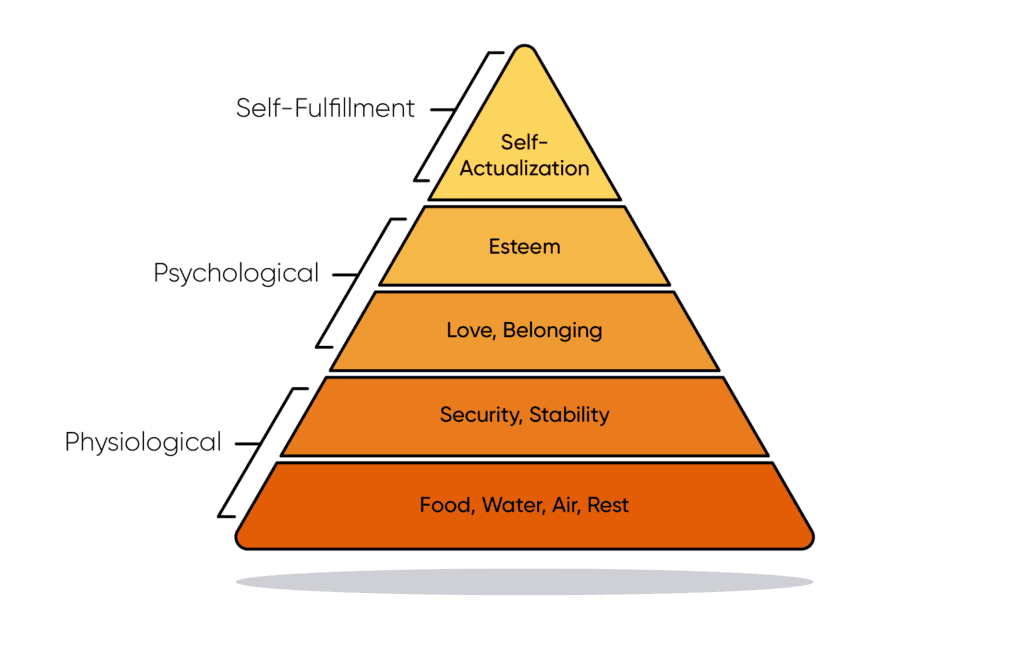
This post may contain affiliate links. For more information, read the full disclosure here.
Have you ever wondered, “What does happiness feel like?” Many people ask this question because they seek that sense of joy and contentment.
Happiness isn’t just a single emotion; it’s a vibrant palette of feelings, from the rush of excitement and enthusiasm to the profound sense of peace and fulfillment.
In this post, we’ll jump into how happiness manifests itself, exploring how it can boost your energy, foster gratitude, and even connect you more deeply with the world around you.
Whether you want to understand your happiness or find new ways to chase it, you’re in the right place. Let’s begin on a journey to uncover the essence of joy and how it can transform our lives, one joyful moment at a time.
The Psychological Perspective On Happiness
If you’ve ever wondered, “What does it feel like to be happy?” or “How does happiness feel in the body?” you’re in luck because psychology has some pretty compelling answers to these questions.

The Definition Of Happiness
Happiness is a complex emotional state that is difficult to define, but psychologists have attempted to define it in various ways. One common definition of happiness in psychology is:
Happiness is a positive emotional state that is characterized by feelings of pleasure, contentment, and satisfaction with one’s life.
Kendra Cherry, Very Well Mind.
This definition suggests that happiness is a subjective experience that involves a range of positive emotions and a sense of overall well-being[1]. Factors such as genetics, personality, life circumstances, and personal choices can influence happiness, which can be enhanced through practices like gratitude, mindfulness, and positive social connections.
Psychologists also distinguish between two types of happiness: hedonic and eudaimonic. Hedonic happiness is based on pursuing pleasure and avoiding pain[2], while eudaimonic happiness is based on a sense of meaning and purpose in life[3].
Both types of happiness can contribute to overall well-being, but eudaimonic happiness is often seen as more sustainable and fulfilling in the long run.
How Do Psychologists Define Happiness?
Psychologists say happiness is an emotional state characterized by positive feelings, such as contentment, joy, satisfaction, fulfillment, and well-being[1].
However, it’s important to note that happiness is not a constant state and can fluctuate throughout one’s life. It is an ongoing process requiring intentional effort and action. People may experience happiness in different ways, such as feeling inner peace and connection with others, a sense of purpose, or a feeling that life is meaningful.
There are many theories and models of happiness in psychology, and researchers have identified various factors that can contribute to happiness, including positive emotions, meaningful relationships, a sense of purpose or accomplishment, and engaging in activities that bring joy and fulfillment.
Maslow’s Hierarchy Of Needs
In 1943, Abraham Maslow, an American psychologist, shared his ideas about what drives people in his book “A Theory of Human Motivation.” He believed that before we can focus on things like feeling respected or finding our purpose, we need to take care of basic needs first, like having air, food, and water[4].
Even though Maslow’s theory has been around for almost 80 years, his thoughts still matter a lot. The idea is that what happiness feels like can significantly depend on where you’re standing on this pyramid. Climbing up, feeling accomplished, loved, and in tune with your personal potential, is where the magic happens—this is what happiness feels like.
Impact Of Happiness
When you experience happiness, your brain releases a cocktail of chemicals like dopamine, serotonin, endorphins, and oxytocin. These chemicals work together every second of your day to regulate your mood, perception, and view of life.[5] Basically, they’re your body’s feel-good medicine.
Beyond these momentary bursts of joy, happiness can have a profound impact on your overall well-being. It’s like a domino effect; happiness can boost your immune system, increase your lifespan, and even improve your relationships.
8 Types Of Happiness: What Does Happiness Feel Like?
Happiness can be experienced in many ways, but it is typically felt as a sense of contentment, joy, and satisfaction with life. It can also be experienced as a sense of inner peace, a connection with others, a sense of purpose, and a feeling that life is meaningful.
People may also experience happiness in other forms, such as a feeling of excitement, enthusiasm, and pleasure. As happiness can feel different for different people, here are some of the most common feelings associated with happiness:
- Joy and contentment: Happiness often brings a sense of joy and contentment, a feeling of being at peace with oneself and the world.
- Excitement: Happiness often brings that sparkly anticipation of something great on the horizon. Excitement has you bouncing on your toes, sparkling with the possibilities of what’s to come.
- Energy and enthusiasm: Happiness can boost energy and enthusiasm, making you feel more motivated and engaged with life.
- Gratitude and appreciation: When you’re happy, you’re more likely to feel grateful for the positive things in your life and appreciate the people and experiences around you.
- Pride: Feeling proud is that satisfying feeling in your chest when you look back at your milestones. Pride comes from recognizing your efforts and celebrating them, big or small.
- Positive outlook: Happiness can also lead to a positive outlook on life, making you feel optimistic about the future and able to see the good in difficult situations.
- Sense of fulfillment: Being happy can bring a sense of fulfillment, contentment, and purpose, making you feel like you’re living a meaningful life.
- Connectedness: Happiness can also bring a feeling of connectedness to others, making you feel more connected to the people and communities around you.

7 Signs Of Happiness: How Do People Act When They’re Happy?
Happy people typically display a positive attitude and demeanor. They may be more outgoing, friendly, and willing to help others. They may display more patience, generosity, and compassion. They may also be more creative and willing to take risks.
As people can act in different ways when they’re happy, here are some of the most common behaviors associated with happiness:
- Smiling and laughter: People who are happy often smile and laugh more frequently, which can be contagious and spread to those around them.
- Positive attitude: Happy people tend to have a positive attitude towards life and see the good in others and the world around them.
- Engaging with others: Happiness can lead people to be more outgoing and social, engaging with others and seeking out new experiences and opportunities.
- Increased energy: Happy people often have more energy and motivation to pursue their goals and engage in activities they enjoy.
- Expressing gratitude: Happiness is often associated with feelings of gratitude and appreciation, and happy people may express their thanks to others more often.
- Kindness and generosity: Happy people may be more likely to engage in acts of kindness and generosity towards others.
- Creativity and exploration: Happiness can lead people to be more open to new experiences and ideas, fostering creativity and a sense of exploration.
How Do You Know If You’re Happy?
Have you ever caught yourself mid-laugh, surrounded by friends, or maybe just chilling with your favorite book, and suddenly thought, “Wow, is this what happiness feels like?” In these moments, you are happy.
You may feel a general sense of joy, contentment, and pleasure in your life. You may experience a sense of inner peace and connection with others. You may have a positive outlook on life and enjoy activities that bring you joy. You may find yourself feeling more motivated and focused on achieving your goals.
Ever noticed feelings of gratefulness and satisfaction? The moments that you’re grateful for what you have in your life and are satisfied with it as a whole. It’s that feeling of “This is what I’ve been looking for.”
But also having positive relationships with friends, family, and partners and good physical health (a healthy diet, regular exercise, and enough sleep) are linked to happiness.
Besides a good relationship with others, is the relationship with yourself. Happy people tend to accept themselves for who they are, their flaws and all.
Last but not least are having a sense of purpose in life and engaging in activities you enjoy that are known to contribute to happiness and a fulfilling life.
How To Be A Happier Person

Pursue Intrinsic Goals
Picture this: You’re working on something because it ignites your passion, not because it’ll make you Insta-famous or make others happy. That’s the essence of pursuing intrinsic goals.
Focusing on personal growth, relationships, and experiences rather than just accolades and bank balances makes happiness feel more like a cozy, warm blanket than a fleeting high. So next time you set a goal, ask yourself if it’s for the ‘gram or for your soul.
Enjoy The Moment
But really, have you ever stopped to savor that first sip of coffee in the morning or listened to the rain patter against the window? That’s what happiness feels like in the body: a sensory symphony playing just for you. So, the next time life’s carousel is spinning wildly, remember to press pause and breathe in the now.
Reframe Negative Thoughts
Your brain can be a drama queen, catastrophizing the smallest hiccups into full-blown disasters. Here’s where you master the art of the reframe: instead of thinking, “I bombed that presentation,” try, “I learned what I can do better next time.”
Reframing isn’t about denying your feelings but about giving them a makeover. What does joy feel like? It feels like flipping the script on negativity.
Get Regular Exercise
Let’s be real: The idea of exercising can sometimes feel like a chore. But hear me out. What does feeling good feel like? Often, it feels like the endorphins released during a good workout. You don’t need to run a marathon or lift like an Olympian.
A brisk walk, a bit of yoga, or some funky dance moves in your living room for just 30 minutes a day can dramatically boost your mood. Think of it as a happiness potion in motion.
Show Gratitude
Imagine starting your day writing down three things you’re grateful for. It doesn’t have to be monumental. Gratitude can find a home in the mundane. This practice is like tuning your brain to the frequency of joy, transforming how you view your world.
Ask yourself, “What do you feel when you are happy?” Gratitude amplifies those feelings, making happiness more than just a fleeting visitor.
Find Your Purpose
The million-dollar question: “What’s it like to be happy?” Often, it’s knowing that you’re contributing to something bigger than yourself. Finding your purpose might sound daunting, like something only heroes in movies need to discover.
But it’s really about asking, “What lights my fire?” It could be creating art, helping others, or protecting the planet. When you connect with your why, every day feels a bit more like a chapter in an epic saga.
Nurture Relationships
What does happiness look like? Sometimes, it’s in the laughter shared over a ridiculous meme or a deep conversation that stretches into the wee hours. The strongest predictor of happiness isn’t your salary or status; it’s the warmth of your relationships.
Make time for those heart-to-heart talks, those “just because” messages, and those belly laughs that make you forget about time. These moments are the bricks that build the road to happiness.
Conclusion On What Does Happiness Feel Like
Happiness isn’t just a fleeting moment of joy—it’s a journey you begin on every day. By understanding the essence of what makes you feel fulfilled and content, you’ve taken the first step toward a happier life.
Remember, it’s the simple practices, like expressing gratitude, enjoying the present, and connecting with others, that weave the fabric of long-lasting happiness.
So, start small. Find joy in the little things, and let those moments inspire you to pursue deeper, more meaningful paths to happiness. After all, it’s in the pursuit and the process where the true essence of happiness lies. Let’s make every day a step toward a happier, more fulfilled you.

